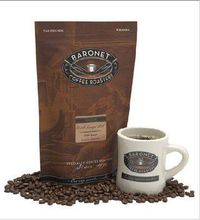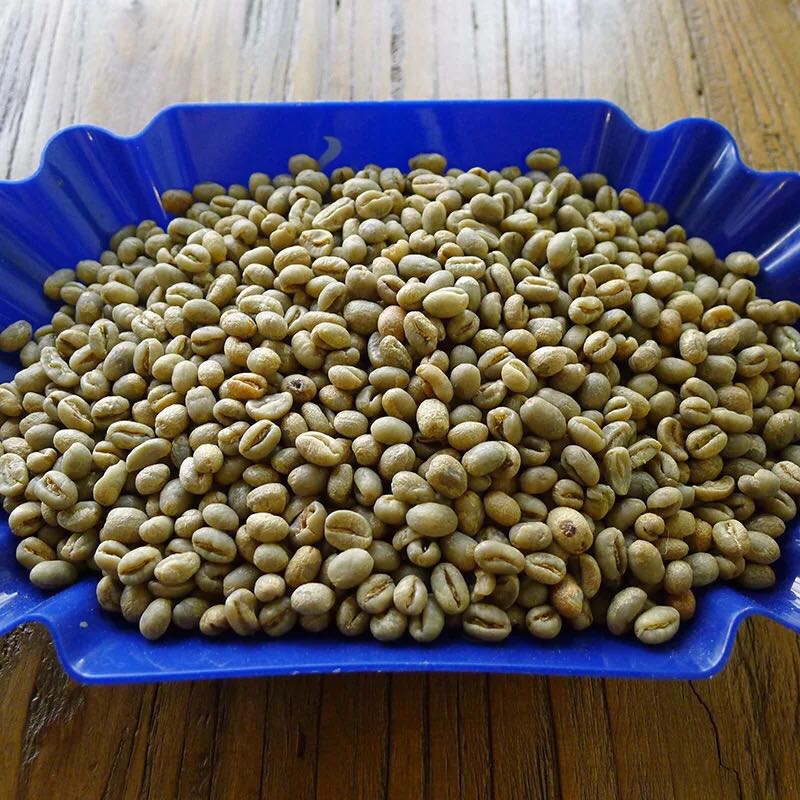The Origin of Cat poop Coffee beans
Coffee beans generally go through the process of fermentation of the shell. Coffee beans are in the intestinal tract of the civet. Special bacteria provide a unique fermentation environment. The flavor becomes unique and especially thick and mellow. Coffee beans fermented by civet intestines are especially thick and fragrant.
Eva, the owner of Te Cafe, is a coffee enthusiast who travels around the world every year to collect rare products. She told reporters that "cat poop coffee" was once a tribute from Indonesia to the Dutch royal family. At that time, the industry regarded this coffee with the name "cat poop" as a joke, until National Geographic magazine carried a special report on this, everyone gradually became interested in this "cat poop coffee".
expensive
"Cat poop coffee" is the world's least produced coffee, a bag of 50 grams of coffee beans worth more than 800 yuan, can only make 4- 5 cups of coffee. In terms of conversion, a cup sells for about 200 yuan. Indonesia's largest coffee supplier, Fireboat Group, produces a small gift box of civet coffee for 600 yuan and 50 grams. The packaging is extremely luxurious, while the asking price of 100 grams is more than 2000 yuan. The annual output of wild coffee in the world does not exceed 400 kilograms. Villagers in these areas now collect not only wild ruaka waste but also caged ruaka. Large pots of picked coffee cherries were placed in front of Ruwaka, who was hungry and had no choice but to eat all the coffee cherries. The taste of the coffee produced in this way is naturally greatly discounted. "Rare is expensive", which has led to the high price of Kopi Luwak, a rare treasure. I'm afraid you can prepare 50 pounds for a cup of coffee, and you may not find it anywhere.
★ A cup of coffee made from 12 grams of cat feces coffee powder sponsored by Huochuan Group at the 2010 Shanghai World Expo is 380 yuan, and the daily limit of 12 cups is in short supply.
★ In Bali, a cup costs more than 200,000 Indonesian rupiah, equivalent to more than RMB 150.
★ In the United States, 1 kg of cat poop coffee beans goes up to USD 1200. It is always around USD 1000 on the international market.
In Britain, a glass costs 50 pounds (RMB 500).
Cat poop coffee processing
Cat poop coffee processing
In Indonesian,"Kopi" means coffee, and "Luwak" is the Indonesian name for "civet." It is said that the annual production of this coffee does not exceed 500 pounds, and the price per pound ranges from $300 to $800, depending on the year, because there is no fixed production every year.
Luwak coffee remains a veritable luxury on the international market, not least because it is made not by humans but by wild animals. Traditionally, coffee fruit is washed or sun-dried to remove the peel, pulp and sheepskin layer, and finally the coffee beans are taken out, but Luwak coffee is made by natural fermentation in wild animals. Moreover, these wild animals are only found on small islands like Indonesia. The time and place of their appearance are mysterious, and their numbers are decreasing day by day. Indonesia has claimed that conservation and breeding have helped keep the civets stable, but the digestive system that created them to tempt human taste buds has nothing to do with industrial-age products.
"Civets" are omnivores. They are solitary and nocturnal. They inhabit tropical rain forests, subtropical evergreen broad-leaved forests, mountain shrubs or hills, mountains, grass and other places below 2000 meters above sea level. Its food includes small mammals, birds, amphibians and reptiles, crustaceans, insects and plant fruits, seeds and so on. "Civet" likes to choose the most ripe, sweet, full and juicy coffee fruit in the coffee tree as food, and the coffee fruit passes through its digestive system, only the pulp of the fruit is digested, and the hard coffee beans are then excreted intact by the "civet" digestive system. This is the "natural fermentation method" that was once scorned by Americans. It is said that when Americans heard that there was a way to make coffee in this way, they thought it was a fantasy until it was reported by National Geographic magazine.
The world's most luxurious coffee, the world's most expensive coffee, the world's rarest coffee…
Kopi Luwak has always been described like this, and it sounds like a boring anecdote.
It reminds me of Oscar Wilde.
People tend to pay too much attention to the price of things, and often ignore their own value…Forget the rumors of clumsy and useless embellishments,
Let's start a magical cat poop coffee tour...
unique flavor
Cat poop processed into the world's most expensive coffee
Cat poop processed into the world's most expensive coffee
Indonesian coffee has earthy and herbal flavours and is the highest consistency in any continent. But "cat poop coffee" has a stronger earthy smell and a consistency closer to syrup, with a very special aroma. After drinking, there will still be a faint mint cool feeling in the mouth, which is the "exclusive taste" that ordinary coffee does not have. After drinking a cup, take a deep breath or take a mouthful of cold water, you can obviously feel a cool sensation from the mouth to the throat, as if you just ate a mint throat lozenge.
Experts say the Indonesian civet has a gland near its sex organs that secretes milky oil, which has long been a precious ingredient in perfume. Even Shakespeare's play King Lear has such a dialogue: "Please give me some civet oil to stimulate my inspiration." Another said: "This coffee is unique, it is a specialty of Indonesia. Drinking it is like finding a diamond in a stone." Because the wild civet is obviously better at picking good coffee fruits, this coffee has a unique character.
Origin Editor
According to the CEO of the coffee company, the coffee brand is 100% guaranteed to be pure wild kopi luwak.
Civet Sumatra bean
Civet Sumatra bean
It must be produced at an altitude of more than 1000 meters in Sumatra Plateau; instead of being produced in Vietnam or other plains in Indonesia, many Indonesian farmers produce coffee beans produced by captive civets. Most of the Kopi Luwak coffee claimed on the market today is not Kopi Luwak fakes, and their appearance can be roughly divided into these forms: the first is to claim that it is collected from the coffee beans in the coffee plantation where Luwak has been found, called Kopi Luwak coffee, not the coffee beans that are really digested by Luwak; the second is to add spices to stir up the taste of coffee; otherwise, it is simply to crown the name of Kopi Luwak coffee to fish for fame and raise the price. Moreover, domestic coffee producers do not have favorable certificates to show to consumers for verification, and the products are often obtained through agents in the United States, Canada, Britain or Australia, rather than directly imported from Indonesia, resulting in uneven coffee quality.
Coffee Brand Editor
Coffee brand 100% guaranteed wild kopi luwak, grown in Sumatra, Java, and Survish islands
It is part of Indonesia's 13,677 islands. Kopi Luwak brand is the only officially recognized brand by the Indonesian government and is loved by coffee lovers for its unique fruity and long aftertaste.
Cat poop coffee is definitely an international luxury because it is produced by Luwak cats rather than humans, especially wild luwak cats native to Indonesia, which are vegetarians and very rare and precious. Indonesian coffee has a long history background, coffee footprints can be found in almost every corner of the country, mountainous islands, very suitable for its growth, and even wild coffee can often be found all over the forest, which provides convenience for cat feces coffee producers-civet cats.
Brewing Method Edit
The aroma of Kopi Luwak is lost more easily than regular coffee. To preserve flavor, coffee beans are packaged individually
Civet Java coffee beans
Civet Java coffee beans
, and then inject nitrogen to prevent oxidation of coffee beans. The production process is complicated and rigorous. If you want to enjoy the true taste of Kopi Luwak, do not add sugar or milk to the coffee, it is recommended to use a stopper pot (Siphon type), add 160~180 ml (ml) of pure water, pour 17 grams (grams) about 2 tablespoons of coffee powder, wait for the water to roll up and gently press the raised coffee powder with a flat bamboo sheet, remember!! Do not stir, or coffee will become bitter, sour, astringent.
The water temperature is 96℃, the water pressure is 9-10atm, boiling for about 1 minute 45 seconds to 2 minutes, quickly remove the fire source and wipe the glass bottle repeatedly with a cold damp cloth to cool it rapidly. The brewed coffee will fall quickly and present a large number of golden yellow fine bubbles, so that it can achieve the ultimate flavor. With the general brewing method, some people say that civet coffee can be brewed 2~3 times, but the above brewing method is regarded as the most essential after boiling for a long time, and it is not recommended to bubble back.

Important Notice :
前街咖啡 FrontStreet Coffee has moved to new addredd:
FrontStreet Coffee Address: 315,Donghua East Road,GuangZhou
Tel:020 38364473
- Prev

The Origin of Bali Coffee beans
The story of Bali coffee is perhaps one of the most fascinating and romantic stories in coffee history. In 1862, in the resplendent Palace of Versailles, the Sun King Louis XIV sat dangerously, the priceless, legendary 67-carat blue diamond of hope on the crown, dazzling, and the aristocratic ministers present at the court were dressed in gold and silver. They are waiting to come from the distant and magical east
- Next

Characteristics of Papua New Guinea Coffee beans introduction of fine coffee in Papua New Guinea
The legendary background of modern coffee. In PapuaNewGuinea, about 75 per cent of coffee products come from small local farmers
Related
- Does Rose Summer choose Blue, Green or Red? Detailed explanation of Rose Summer Coffee plots and Classification in Panamanian Jade Manor
- What is the difference between the origin, producing area, processing plant, cooperative and manor of coffee beans?
- How fine does the espresso powder fit? how to grind the espresso?
- Sca coffee roasting degree color card coffee roasting degree 8 roasting color values what do you mean?
- The practice of lattes: how to make lattes at home
- Introduction to Indonesian Fine Coffee beans-- Java Coffee producing area of Indonesian Arabica Coffee
- How much will the flavor of light and medium roasted rose summer be expressed? What baking level is rose summer suitable for?
- Introduction to the characteristics of washing, sun-drying or wet-planing coffee commonly used in Mantenin, Indonesia
- Price characteristics of Arabica Coffee Bean Starbucks introduction to Manning Coffee Bean Taste producing area Variety Manor
- What is the authentic Yega flavor? What are the flavor characteristics of the really excellent Yejasuffi coffee beans?

